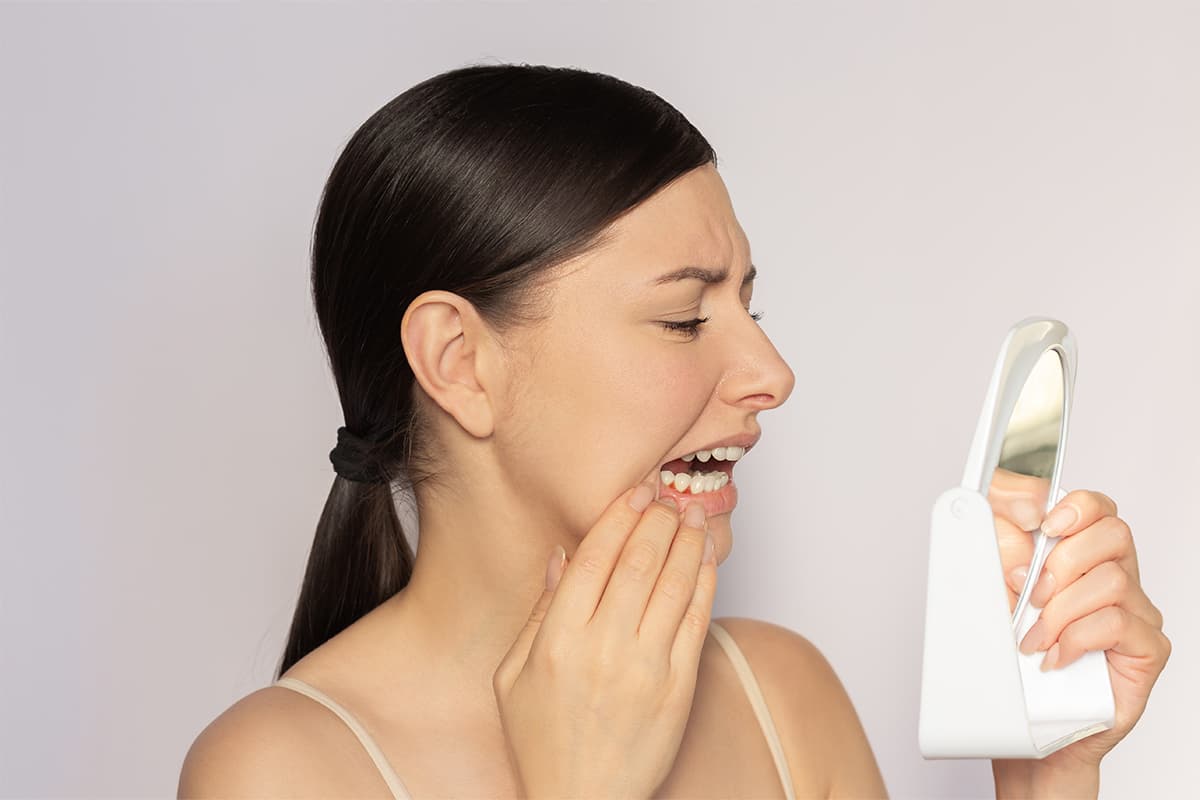Tooth sensitivity after professional whitening is completely normal and affects many patients. The good news? It's temporary and there are proven strategies to minimise discomfort while you enjoy your brighter smile. Here's everything you need to know about managing post-whitening sensitivity.
Why Does Whitening Cause Sensitivity?
Understanding the cause helps you address it effectively. During whitening, the bleaching agents (usually hydrogen peroxide or carbamide peroxide) penetrate your tooth enamel to break down stain compounds. This process temporarily opens tiny tubules in your teeth that lead to the nerve, making them more reactive to temperature and pressure.
This sensitivity typically peaks within the first 24-48 hours after treatment and gradually subsides over the following days. For most patients, any discomfort resolves completely within a week.
Immediate Relief Strategies
1. Use Desensitising Toothpaste
Switch to a toothpaste specifically formulated for sensitive teeth. Look for products containing potassium nitrate or stannous fluoride — these ingredients help block the tubules and calm the nerve. For best results:
- Start using sensitive toothpaste 1-2 weeks before your whitening appointment
- Apply a thin layer to your teeth before bed and leave it on overnight
- Continue using for at least 2 weeks after treatment
2. Avoid Temperature Extremes
For the first few days after whitening, steer clear of very hot or cold foods and drinks. Your teeth are temporarily more reactive, so:
- Let hot drinks cool slightly before sipping
- Avoid ice-cold beverages or use a straw
- Skip ice cream and frozen treats temporarily
- Choose room-temperature water
3. Skip Acidic Foods Temporarily
Acidic foods and drinks can aggravate sensitivity by further exposing the tubules. For 48-72 hours after whitening, limit:
- Citrus fruits and juices
- Tomatoes and tomato-based sauces
- Fizzy drinks (including sparkling water)
- Wine and vinegar-based dressings
- Pickled foods
Professional-Grade Solutions
Fluoride Treatment
At our South Kensington clinic, we often recommend a professional fluoride application immediately after whitening. This helps remineralise the enamel and seal those open tubules faster than over-the-counter products alone.
Desensitising Gel
We provide patients with a professional-strength desensitising gel that can be applied in your custom whitening trays. This is particularly effective for those with naturally sensitive teeth or anyone experiencing prolonged discomfort.
Home Remedies That Actually Work
Saltwater Rinse
A simple saltwater rinse can help reduce inflammation and sensitivity. Mix half a teaspoon of salt in 250ml of warm water and gently swish for 30 seconds. Repeat 2-3 times daily.
Green Tea
Unsweetened green tea (cooled to room temperature) contains anti-inflammatory properties and tannins that can help strengthen teeth. Drink or use as a rinse once daily.
Soft-Bristled Brushing
Temporarily switch to an extra-soft toothbrush and use gentle, circular motions rather than aggressive back-and-forth scrubbing. Hard brushing can worsen sensitivity and potentially damage softened enamel.
What to Avoid
While managing sensitivity, steer clear of habits that could make things worse:
- Whitening toothpaste — These are too abrasive for freshly whitened teeth
- Mouthwash with alcohol — Can cause stinging and dry out your mouth
- Crunchy or hard foods — May cause discomfort when biting
- Additional whitening products — Don't double up; give your teeth time to recover
- Teeth grinding — If you clench or grind, wear your night guard
When to Contact Your Dentist
While some sensitivity is normal, certain symptoms warrant a call to your dental clinic:
- Severe pain that doesn't respond to over-the-counter pain relief
- Sensitivity lasting more than 2 weeks
- Gum irritation, swelling, or bleeding
- Sharp, shooting pain in specific teeth
- Visible damage to teeth or gums
These could indicate an underlying issue that needs professional attention.
Preventing Sensitivity in Future Treatments
If you're planning touch-up whitening sessions, these steps can help minimise sensitivity:
- Pre-treat with sensitive toothpaste — Start 2 weeks before your appointment
- Discuss lower concentrations — Sometimes a gentler formula with more sessions causes less discomfort
- Space out treatments — Don't rush the process; allow adequate recovery time
- Consider take-home kits — These use lower concentrations over longer periods, often causing less sensitivity
- Maintain excellent oral health — Healthy enamel is less prone to sensitivity
The Bottom Line
Post-whitening sensitivity is a temporary trade-off for a significantly brighter smile. Most patients find that any discomfort is mild and resolves within a few days. By following these tips and being gentle with your teeth during the recovery period, you can minimise any discomfort while enjoying your stunning results.
At Teeth Whitening London, we take every precaution to minimise sensitivity, including using desensitising agents before and after treatment. If you have concerns about sensitivity or are currently experiencing discomfort after a whitening treatment, don't hesitate to contact our South Kensington clinic — we're here to help.
Ready to Transform Your Smile?
Book your appointment today and discover the best treatment for achieving your dream smile.
Book Now